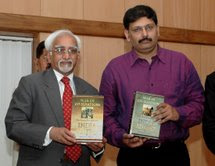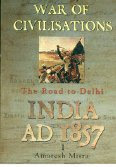AN ALTERNATIVE NARRATIVE OF NATIONALISM

Response to a debate: Hindus and Muslims did participate in the freedom movement under Gandhi and fought under one flag in post-independence wars. But never, never did they unite with reverence and respect for each other's religions as in 1857. The concept of religion in 1857 worked as a uniting, and not a divisive, force. Secondly, 1857 was the uprising of the peasantry. Even sepoys were all peasants. This is different from the Congress led freedom movement. Middle class, a product of the British education system, dominated the latter. 0 The men and women who fought in 1857 had roots in pre-British India of indigenous categories and practices. The same cannot be said of those who fought in the post-1857 phase. Where else but in 1857 will you find the Hindu religious peasantry going to Delhi to install a Muslim king? Where else will you find Muslim cavalry placing Nana Sahab Peshwa, a kattar Brahmin, on the throne of Kanpur? Apart from a brief perio...


